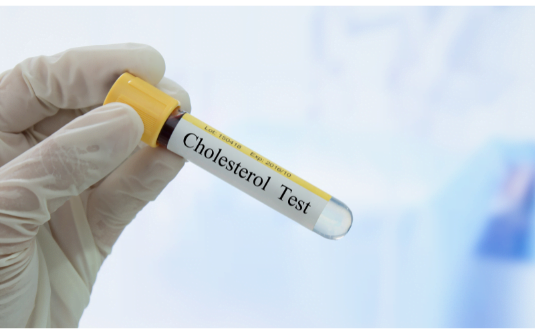High cholesterol or hypercholesterolemia is a condition that can be caused by many things, including diet, genetics, and lifestyle. High cholesterol can lead to serious health problems, including heart disease and stroke.
What is high cholesterol?
High cholesterol is a condition with an excess of cholesterol in the bloodstream. Cholesterol is a type of fat found in our food and is also produced by the liver.
What are the types of cholesterol?
There are two types of cholesterol: low-density lipoprotein (LDL) cholesterol and high-density lipoprotein (HDL) cholesterol. LDL cholesterol could also be called “bad” cholesterol because it can build up in the walls of the arteries, causing them to narrow and harden. This narrowing and hardening can lead to a heart attack or stroke. HDL cholesterol is often called “good” because it helps remove LDL cholesterol from the arteries.

The normal range for LDL cholesterol is less than 130 mg/dL. The normal range for HDL cholesterol is more than 40 mg/dL.
High cholesterol often has no symptoms. The only way to know if you have high cholesterol is to get your cholesterol checked by a blood sample through a medical laboratory upon referral by your doctor. You may need to check your cholesterol more often if you have a family history of high cholesterol, heart disease, or stroke.
What can you do to treat high cholesterol?
There are many things you can do to lower your cholesterol. Eating a healthy diet, exercising, and quitting smoking are good ways to lower your cholesterol. You may also need to take medicine to lower your cholesterol.
There are many medications used to treat high cholesterol. Statins are the most commonly prescribed medication to lower cholesterol. Statins work by blocking a liver enzyme that is needed to make cholesterol. Statins can be taken as a pill, typically once a day. Common side effects of statins include headache, nausea, and muscle pain.
Other cholesterol-lowering medications include niacin, fibrates, and resins.
Niacin is a B vitamin that can be taken as a pill or as a cream applied to the skin. Niacin can cause skin flushing, which is a common side effect.
Fibrates work by lowering triglyceride levels and can be taken as a pill. Common side effects of fibrates include gastrointestinal issues and muscle pain.
Resins bind bile acids in the intestine, which helps lower cholesterol levels. Resins are taken as a pill and can cause constipation as a common side effect.
Our pharmacy, Ogden Pharmacy, in Calgary, AB, can help you with all your cholesterol medications. You can also do a 30-second transfer to Ogden Pharmacy through the button below.
The Canadian cholesterol guidelines (or, more accurately, the Canadian Cardiovascular Society Guidelines) were last updated in 2021. The guidelines recommend that adults aged 20 and older check their cholesterol at least once every five years.






